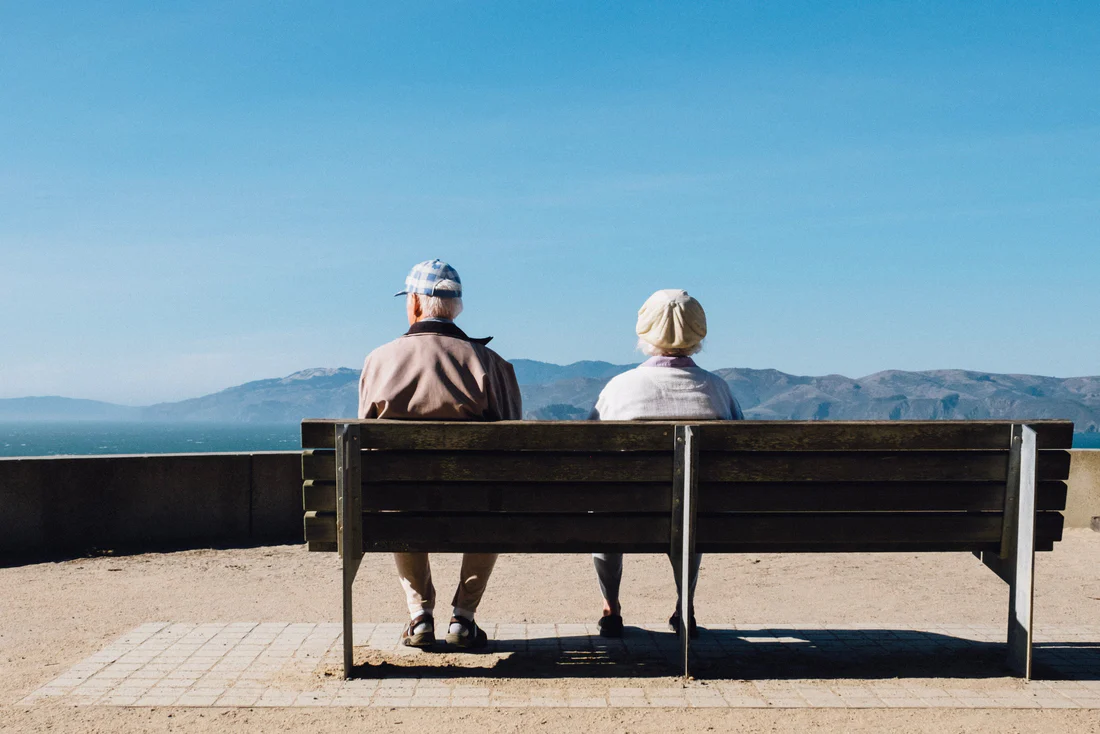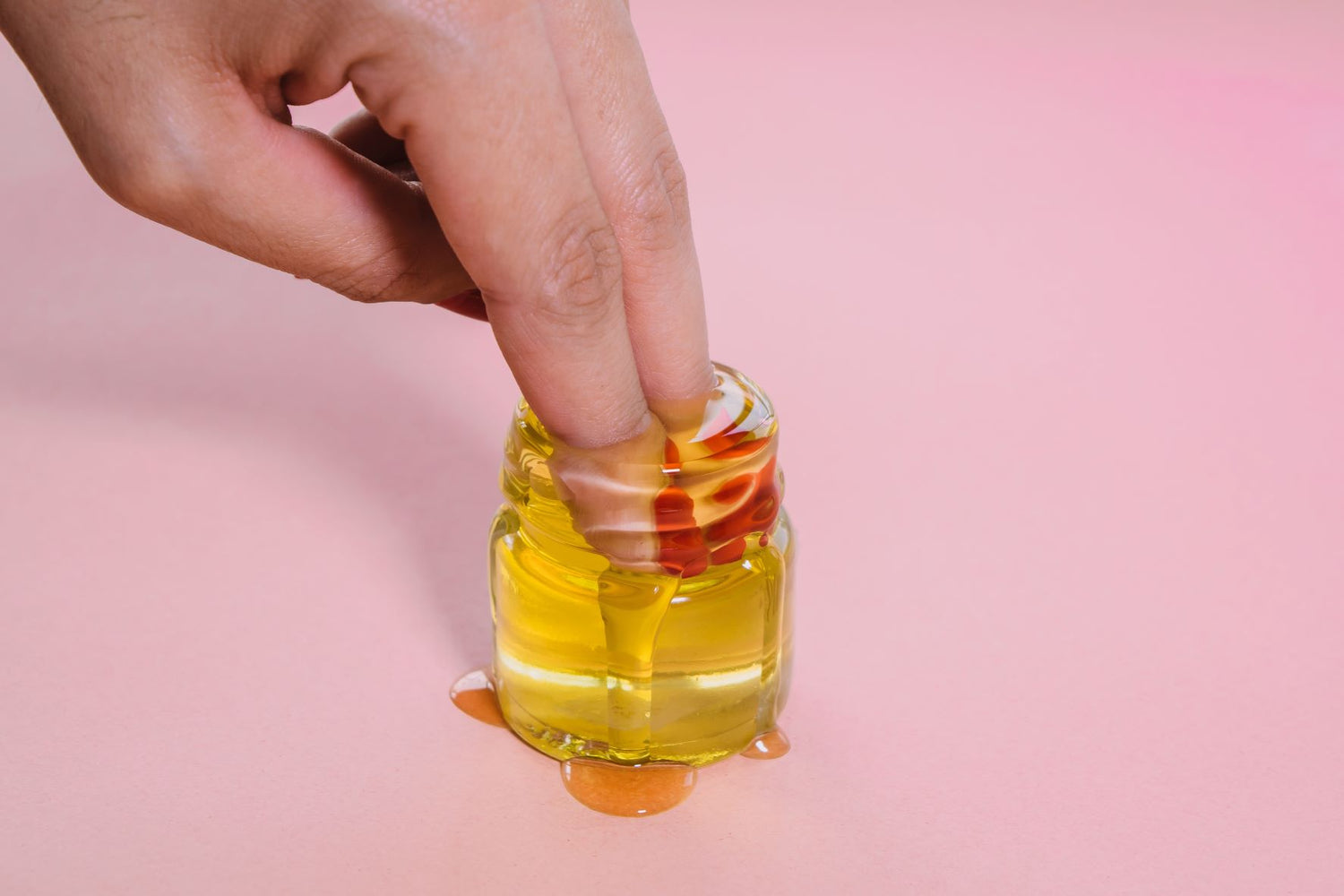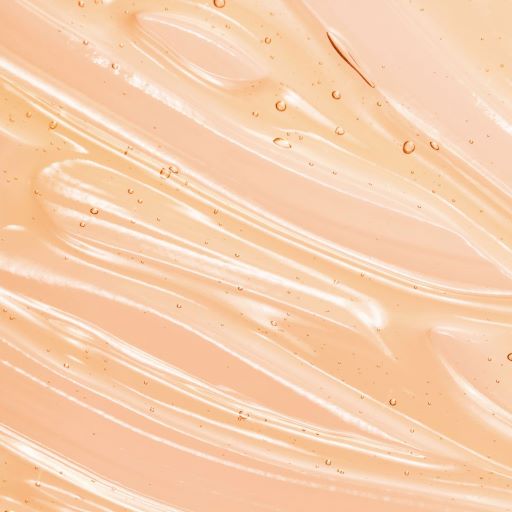
Sex in old age: One day baby, we'll be old
Share
We've all probably thought about what it's like to be "old". You may have romantic notions of sitting in a worn wing chair with a cardigan and lambskin slippers reading a book to your grandchildren, or horror scenarios of illness, infirmity, loneliness, and poverty in old age. Personally, I'm looking forward to being able to rant unfiltered and outrageously without people daring to say anything. But surely very few people think about their sex life as they get older, older people don't do that anymore, do they? What may begin as self-protection in childhood - one does not want to deal too intensively with how one came into being - quickly becomes a taboo subject. This is supported by our society, where sex is reserved for the young and beautiful, and little else is visible. But does our sex life really have an expiration date? And if so, how much time do we have left?
When am I considered old?
Certainly, a question that everyone asks themselves from time to time, and no, it is (hopefully) not the time when you have lost track of all social media platforms. The age limit is actually fluid: as teenagers, everyone over 30 falls into this category. But with advancing age, this limit shifts backward, one still feels young, so that it can be pushed back as far as one likes.
But if we try to use “official” administrative sources (you can always rely on the administration), then “age” starts at 60-65 years of age. For everyone in this age category, however, there is a silver lining, because according to medical studies, from 65 to 74 years of age, you belong to the youngest-old, the "youngest old", from 75-84 to the middle-old, the "middle-aged". and only at the age of over 85 do you belong to the oldest old, the “oldest of the old”, which admittedly doesn't sound that attractive now, sorry. Gerontology, on the other hand, makes their age phases dependent on social factors such as retirement and the need for care vs. autonomous living. Both are certainly important for sexuality in old age: chronological age and biological age.
Facts about sex in old age
So my dears, sex in old age happens. In fact, studies show that sex still plays an important role for almost two-thirds of 75-85-year-olds. However, it is also true that interest in sex seems to decline with age. A Swedish study shows that 98% of the interviewed men* aged 50-59 said that sex was important, while “only” 72% of the 70-80-year-olds said so. A downer for those who dream of a long life: an Italian study found that among the 38 over 100-year-olds who were surveyed, their interest in sex had dried up completely. In addition, women* show a lower interest in sex across all age groups. What's going on there? How does this happen?
What puts off sex in old age?
The “age” is heterogeneous. This simply means that the differences between individuals are greater than, for example, in other age groups. It is actually the case that this difference is similarly large the last time in childhood. This means that aging is very individual and the needs and characteristics in an age category can be very different. We have the so-called “best agers”, these are the funky seniors who, with a smile, overtake you on foot as you cycle uphill and complete the course in the gym without a crimson head and a pain-distorted face, while you prefer to gasp and lie down under an oxygen tent want. Another name is "Silver Surfers", not to be confused with the Silver Surfer from Fantastic Four.
health in old age
But there are also others whose state of health is worsened by acute or chronic illnesses. After all, there are unfortunately no limits to the imagination when it comes to which diseases occur more frequently in old age. These include cancer, cardiovascular diseases, neurological diseases, joint diseases, and, and, and... Smaller and larger ailments appear and you simply notice that the body is no longer doing what you were used to for years, at least for most of them.
These diseases can have an impact on sex life. First of all by the symptoms themselves, but not only. Because of course we also worry more, which can greatly reduce pleasure because they completely fill our thoughts. We get drugs that can dampen desire and the feeling of pleasure. These include medications for high blood pressure or diabetes. And finally, operations and treatments also leave scars and sequelae that can negatively affect our sex life.
hormonal changes
The menopause - or the climacteric (which doesn't sound like something you really want to have either) - often heralds the so-called "third phase of life" for women*. They begin with menopause, which is a confusing and often misunderstood term because it is actually a woman's last menstrual period*. I find it a bit misleading as the word “pause” initially only suggests a break and not an end and it also sounds like women* can finally recover, which is not the case. My theory is that we owe this term to a man*, similar to "baby break", which has nothing to do with relaxation or rest.
Be that as it may, for the majority of women*, menopause is associated with more or less serious symptoms such as hot flashes, insomnia, skin problems, and mood swings, although I would like to give hope because 30% of women* are actually symptom-free. Like much of what happens in the female body, it's not entirely clear where the symptoms are coming from, but at least it's clear that women's* estrogen levels are dropping. This also affects sex, because there can be a loss of libido and vaginal dryness can make penetrative sex painful, but at least hormone creams, for example, can help here.
What is very exciting, however, is that menopause and the perception of the symptoms seem to depend on social factors. Studies have shown that working and better educated women*, i.e. with a higher social status, have fewer severe symptoms. Likewise, lesbian women* have fewer symptoms than straight women*. Cultural factors also influence menopause: Japanese women*, whose reputation increases with age, perceive menopause in a very different and often more positive way than women* in the West, whose social status tends to decline with age. Here all this is in more detail.
So maybe they are something to look forward to after all, as gynecologist Sheila de Liz suggests in her book Woman on Fire. Because actually, the end of your period, with cramps, bleeding, tampons in every pocket, money for period underwear and cups, etc. sounds pretty good at first. So the end of the fertile phase could also mean the end of the terrible days (pun wink smiley).
Although not as severe as in women*, we don't want to ignore the hormonal changes in men*. Because they also have a drop in hormone levels, namely testosterone, which can lead to loss of libido, sleep disorders, and mood swings.
Changes in sex with age
Sexuality changes with age, and desire and performance decrease. Similar to pregnancy , you first have to get used to the changes that are happening in your own body and, above all, adapt your sex life to them. Couples also seem to be able to do this in the long term: a study by the University of Rostock shows that sexual satisfaction in married couples remained stable, although sexual activity decreased over the years due to physical and hormonal changes. It is more important to mention, however, that this stability of contentment was achieved because tenderness, i.e. caressing, snuggling, and cuddling, became more important. What a wonderful result.
So sex in old age not only happens, but we can also look forward to it, at least all the lucky ones who are allowed to experience it. Because many of us would already wish for more tenderness. It is the human need to be caressed, to be close to another person and it promises security. It also makes us aware that we often think of sex in a very one-dimensional way and don't include all the wonderful things it can mean.
As inexorably as we age, so does our society. After all, the number of people aged 67 and over increased by 54% from 1990 to 2018, and the trend is rising. Sex in old age must therefore be freed from taboos, not least because it is also associated with risks, as shown by the increase in sexually transmitted infections among older people, for example in homes. So let's stop pretending that there is no sex in old age, let's learn from its diversity.













